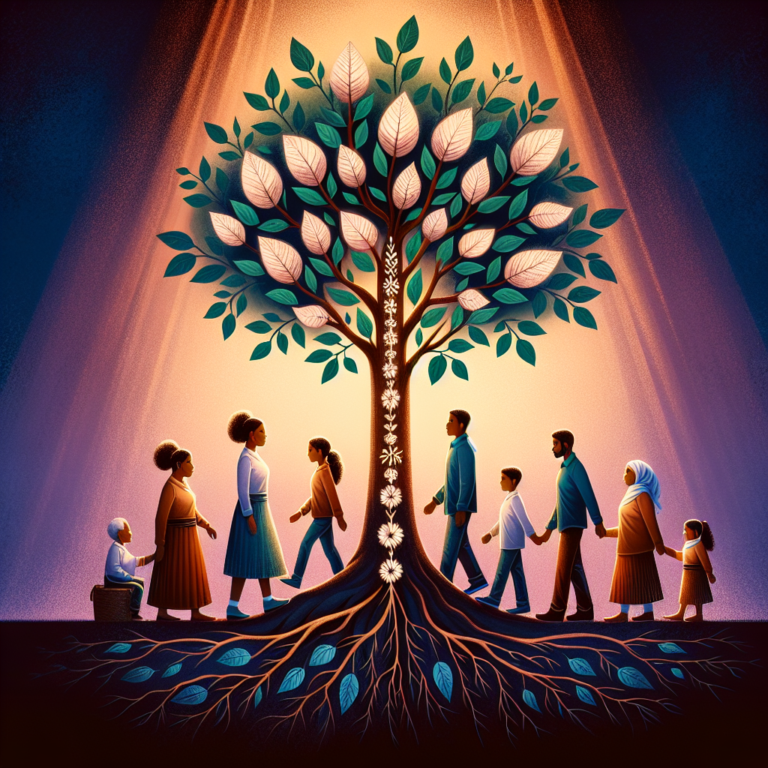Forgiveness—often viewed as a Herculean task—holds the transformative power to alter lives and foster positive karma. In a world where anger, resentment, and grudges can weigh heavily on the heart and mind, forgiveness serves as a guidepost towards inner peace and relational harmony. This article explores how forgiving others and oneself can redirect the flow of karma, creating a ripple effect of positivity that resonates through our lives and the lives of those around us.
The Definition and Essence of Forgiveness
At its core, forgiveness is the conscious decision to release feelings of resentment or vengeance toward someone who has harmed you. It does not mean condoning or excusing wrongdoing, nor does it necessarily require reconciliation with the perpetrator. Instead, forgiveness is about freeing oneself from the grip of negativity associated with past hurts.
When individuals cling to negative emotions, they often find themselves trapped in a cycle of suffering, unable to move forward in life. On the other hand, forgiveness opens the door to renewal. It represents a choice—one that can profoundly affect not only one’s emotional state but also the energy one projects into the world.
Understanding Karma
Karma, a term deeply rooted in Eastern philosophies, signifies the concept that our actions, thoughts, and words have consequences that ripple through time and space. The essence of karma is simple: positive actions yield positive results, while negative actions can lead to negative outcomes. Thus, when we forgive, we are not merely opting to let go of our resentment; we are actively participating in the creation of positive karma.
This connection between forgiveness and karma is profound. By choosing to let go of anger and resentment, we cultivate a spirit of compassion and understanding, which in turn fosters positive karma. By transforming our choices, we are also transforming our lives.
The Impact of Forgiveness
Healing Build Relationships:
Forgiveness encourages healing—in ourselves and in our relationships. It can repair the bonds that were broken by hurtful actions and foster understanding. In interpersonal relationships, holding onto grudges can create a toxic atmosphere of mistrust and distance. When we forgive, we clear the air and can rebuild those connections on a foundation of honesty, respect, and empathy.Spiritual Growth:
The act of forgiving is deeply spiritual. Many believe that to forgive is to align oneself with higher moral and spiritual values, advocating for love over hate and reconciliation over division. This alignment leads to personal growth and enlightenment, enabling individuals to rise above their past experiences.Emotional Release:
Harboring anger or resentment can lead to emotional turmoil, affecting mental health and overall well-being. Forgiveness acts as emancipation, freeing us from the chains of negativity that hold our spirits captive. When we forgive, our emotional burdens lighten, promoting better mental health.- A Ripple Effect:
The energy we put into the world manifests in various ways. Each act of forgiveness not only transforms our personal experiences but also influences those around us. When we choose to forgive, we set an example for others, inspiring them to act with kindness and compassion rather than spite. This creates a collective shift towards positivity, fostering an environment where forgiveness becomes the norm rather than the exception.
Forgiveness Practices
Forgiving someone—especially when deeply wounded—can be daunting. However, certain practices can guide individuals toward forgiveness and help cultivate positive karma.
Self-Reflection:
Engage in deep self-reflection about your feelings concerning the hurt you have experienced. Understanding your emotions and why they persist can illuminate the path toward forgiveness.Empathy:
Try to place yourself in the position of the one who wronged you. Understanding the complexities of their actions—personal struggles, insecurities, or pressures—can foster a sense of compassion that aids in the forgiveness process.Journaling:
Documenting your feelings allows you to externalize and clarify them. Journaling about the act of forgiveness can be cathartic and provide a safe space for processing your emotions.Mindfulness:
Embrace mindfulness techniques such as meditation or deep breathing. These practices help center your spirit and create a calm space for forgiveness to flourish.- Seeking Professional Guidance:
Sometimes, navigating the path to forgiveness can be too challenging alone. Seeking therapy or counseling can provide valuable tools and support in processing your feelings.
Final Thoughts: Forgiveness as a Choice
Ultimately, forgiveness is a conscious choice, an act of will that transforms individual lives and the collective consciousness of humanity. Each time we choose forgiveness over resentment, we are sowing the seeds of positive karma. The more we practice forgiveness, the more we become ambassadors of love and positivity in a sometimes chaotic world.
At its heart, forgiveness is an invitation to free ourselves from the chains of pain and resentment, allowing room for love, understanding, and joy. It is one of the most powerful tools in our arsenal for creating a life full of positive energies and enriching connections with others.
As we navigate through life, let’s strive to make forgiveness a daily practice, transforming our choices into pathways of healing, compassion, and ultimately, positive karma.
Frequently Asked Questions (FAQs)
1. What is the difference between forgiveness and reconciliation?
- Forgiveness involves releasing negative feelings towards someone who has wronged you, while reconciliation is about restoring a relationship. It is possible to forgive without reconciling.
2. Is forgiveness a sign of weakness?
- No, forgiveness is a sign of strength. It requires courage to confront our feelings of hurt and to actively choose release and compassion.
3. Can forgiveness improve my mental health?
- Yes, numerous studies suggest that forgiveness can lead to reduced anxiety, depression, and stress, fostering better overall mental health.
4. How can I forgive someone who has caused deep pain?
- Start with self-reflection, seek to understand their perspective, consider writing about your feelings, and practice mindfulness. Allow time for the process, as healing takes patience.
5. Is forgiveness necessary for personal growth?
- While forgiveness is not mandatory for growth, it is a powerful catalyst. It can free you from past burdens, allowing for personal development and emotional well-being.
In summary, embracing forgiveness can unlock a pathway to a life filled with positivity and healing. Through intentional choices, we can transform our own lives and the lives of those around us, cultivating a world that thrives on compassion and understanding.
It seems like your message might have gotten cut off. Could you please provide more details or clarify what prompt you would like assistance with?, #Forgiveness #Path #Positive #Karma #Transforming #Lives #Choice #Time, #Forgiveness #Path #Positive #Karma #Transforming #Lives #Choice #Time, 1735523655, forgiveness-as-a-path-to-positive-karma-transforming-lives-one-choice-at-a-time





